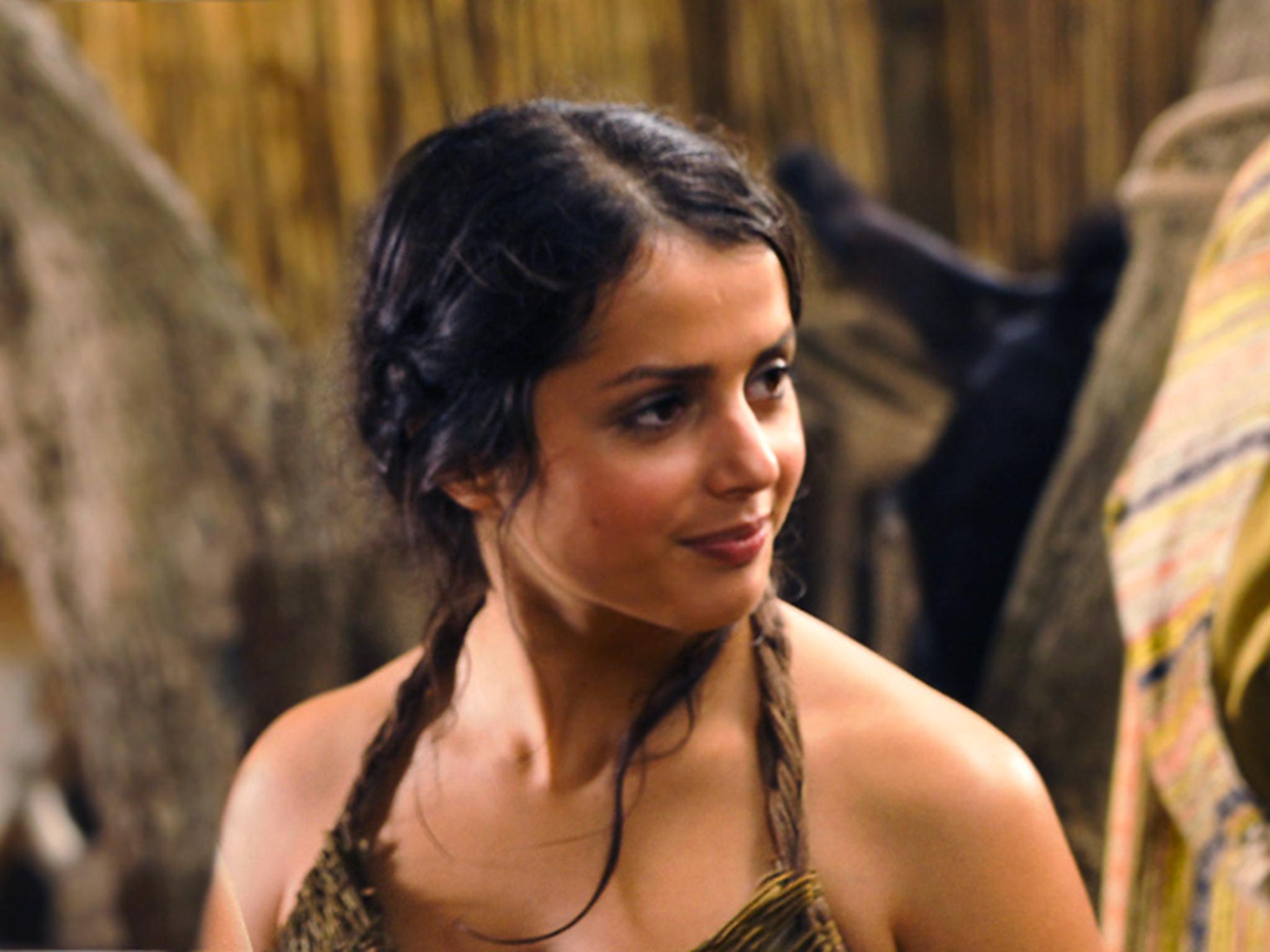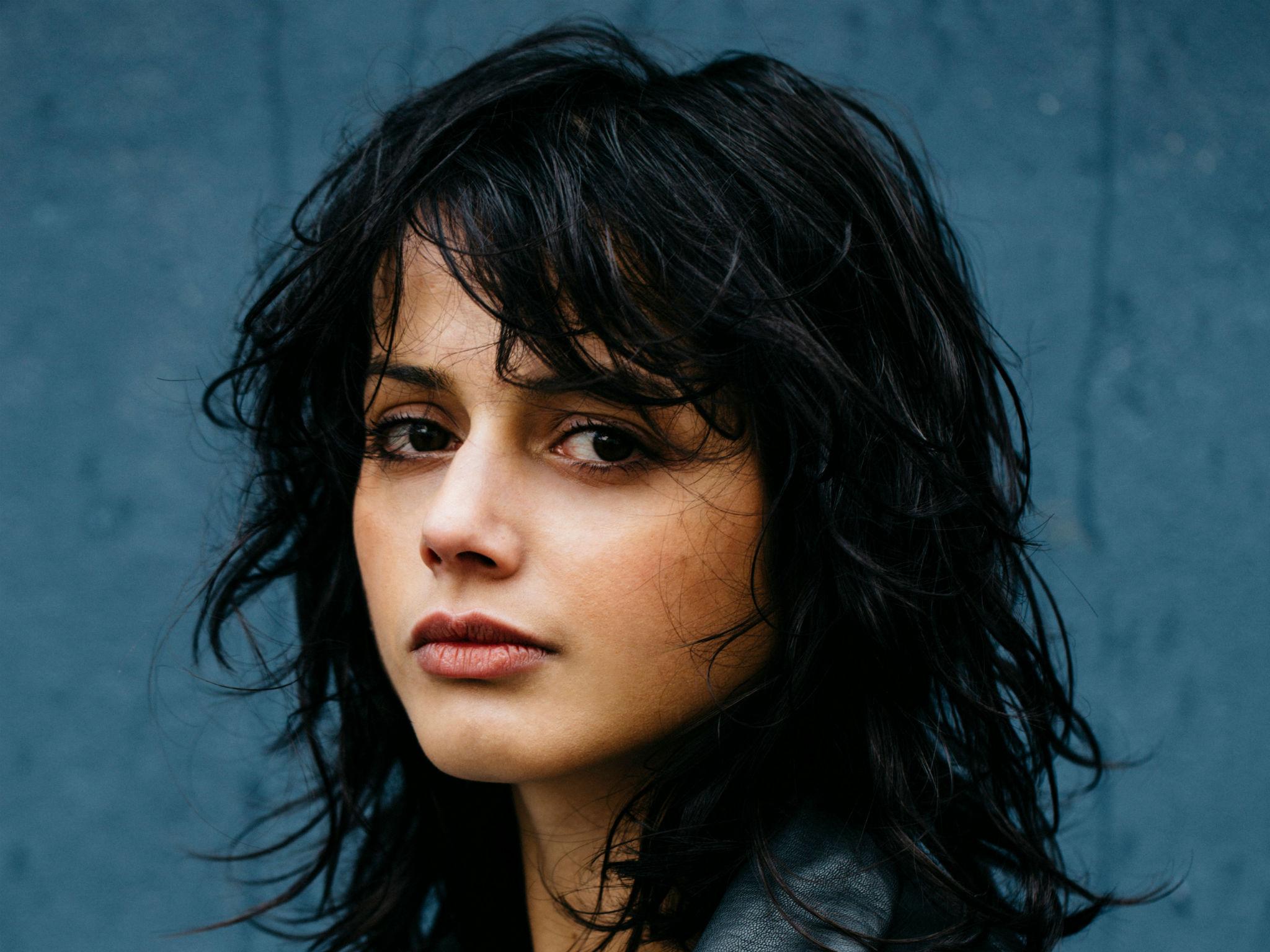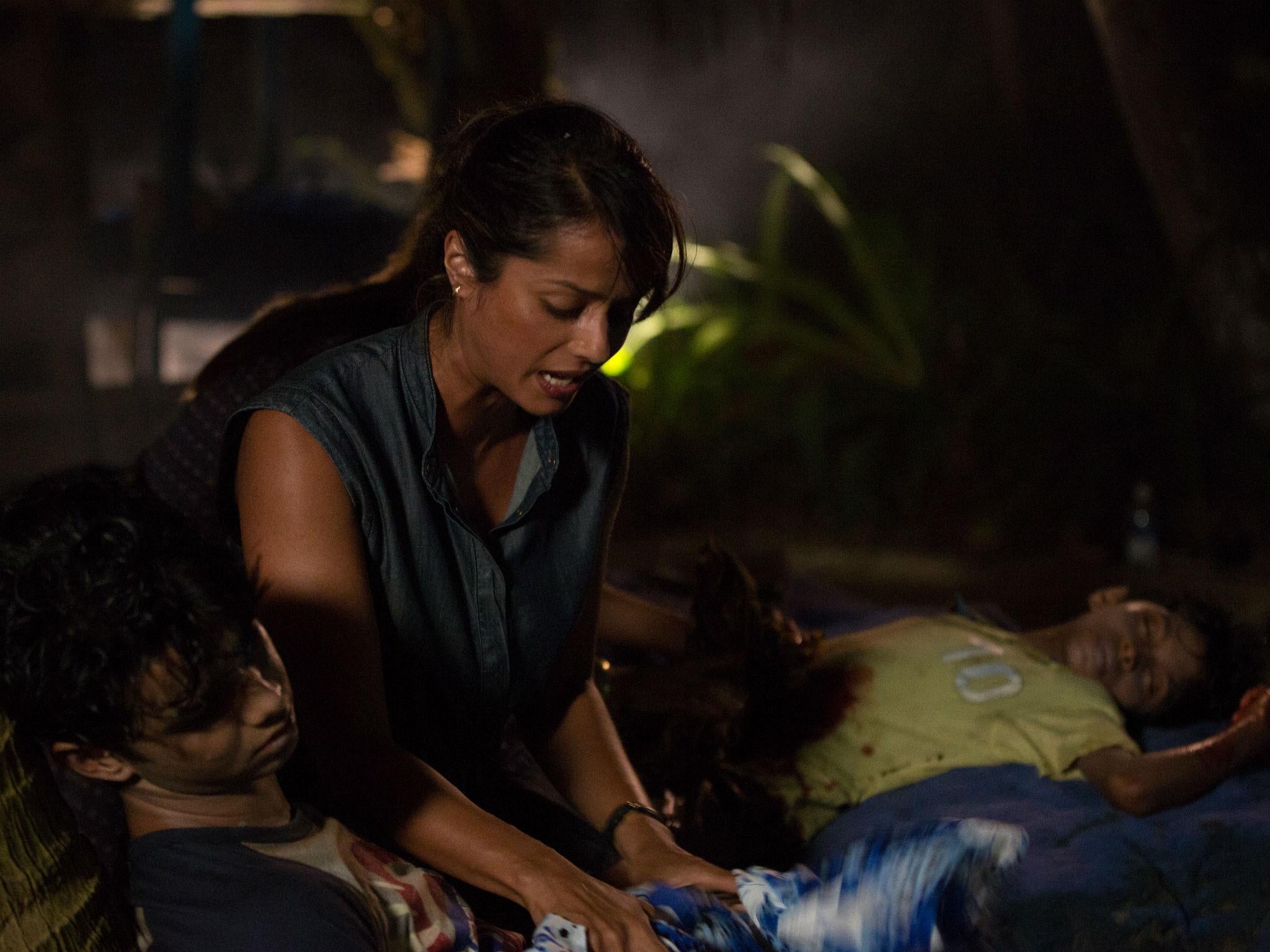Actress Amrita Acharia talks Game of Thrones, Nordic noir and The Good Karma Hospital
After her character Irri was brutally murdered in ‘Game of Thrones’, the actress rose again as queen of Nordic noir and has now landed the lead role in a prime-time ITV medical drama ‘The Good Karma Hospital’, playing a NHS junior doctor

The Dothraki language is “guttural and harsh”, according to the 26-year-old actress Amrita Acharia, who had to learn some of this invented tongue for her role as handmaiden Irri in Game of Thrones. “I love the fact that it sounded a bit like Arabic and it sounded a bit like Spanish to me, because I’ve heard a lot of languages throughout my life.”
The 26-year-old Acharia is not kidding. Her father is a Nepalese gynaecologist who met her mother, a Ukrainian architect, while at medical school in Kiev. Acharia spent the first seven years of life in Nepal, before her father's job took him to England and then, when she was 13, to Norway. “You go into a different vocal chamber with different languages,” she continues. “If I speak Norwegian I tend to speak even lower, and if I'm speaking Ukrainian I might go in a higher pitch.”
Her English accent is slightly estuarine but largely unplaceable – Bristol by way of Colchester and Harlow in Essex, to follow her pre-teen peregrinations across the UK. She speaks quickly, a tad nervous perhaps but also possibly experiencing a rush of endorphins occasioned by a bout of exercise. Throughout her acting career she has also worked as personal trainer, arriving fresh from a session when we meet.

“I was really pedantic about learning Dothraki properly,” she says, but not as assiduous, she admits, as those fans who bought the language course created by HBO to accompany Game of Thrones. “I just learned my lines, but there are people who know the language because I get them trying to talk it to me.”
Even now, it seems, long after her character Irri – handmaiden to Daenerys (the Queen Across the Sea, Mother of Dragons, etc) – was killed off at the end of season two, strangled by her fellow handmaiden Doreah (played by Roxanne McKee), in a scene that was cut from the final edit despite Acharia putting so much into it that she had massive bruising on her neck the following day. “I think it's hard to be strangled on screen because to make it look real, you really have to be a bit strangled”, she says. “I said to Roxanne, ‘Just go for it’.”
Fans were disappointed, as they constantly tell her whenever she attends a Game of Thrones convention, because in George RR Martin's source books, Irri's story continues for a long while, going on to have an affair with a woman. “She doesn't die in the books and she does in the series, but I had two seasons which I think is a pretty good run,” says Acharia. “It was the year I came out of drama school in London, so it was a great lesson in acting and working on screen.”
This shows her to be grounded actress with the sort of acumen that put her on the London property ladder at an age when many millennials are still struggling to afford the rent. “Now I want move to somewhere with a garden”, she says, and she may well be able to afford that if her new TV show – she is the lead in a new ITV prime-time drama The Good Karma Hospital – captures a healthy enough audience.

Co-starring Amanda Redman (New Tricks), Phyllis Logan (Downton Abbey) and Neil Morrissey (Men Behaving Badly), Acharia plays a British-Asian NHS junior doctor who, faced with being dumped by a boyfriend and frustrated at work, impulsively responds to an advert for medics to work at a public hospital in the southern Indian state of Kerala.
The Best Exotic Marigold Hotel meets Holby City might be one way of describing the drama, although there is something of Call the Midwife in the way it cleverly blends soft soap with hard medicine, and actively embraces cultural issues. “The show’s very bold”, she says. “It doesn’t shy away from the shit in life and from the socio-economic situations in India and why the decisions Ruby made there aren’t the same as she would be made here. When people ask is it the same as Casualty, I go ‘no, it's nothing like that’.”
Filming took place over three months, with Sri Lanka standing in for Kerala. “It was interesting being in Sri Lanka because I almost felt that I reconnected with that [Nepalese] part of myself, having been brought up in the western world since the age of seven,” she says, referring to her early childhood in the Kathmandu Valley. The summer holidays were spent visiting aunts and grandparents in the mountain villages “where you had to take one of those buses where people are hanging out of it on a one-way road and you think you're going to die”, she says. “And then you walk six hours until you get to the village.”
Acharia's formative teenage years, however, were spent in Tromso in the far north of Norway, and she says that her accent is “the Norwegian equivalent of Yorkshire – broad but with a twang of English-Ukrainian”. Her linguistic capabilities means that she is widely employable, and in the six months before filming The Good Karma Hospital she played a defence lawyer in the Norwegian noir-thriller series Acquitted, which is currently available in the Walter Presents stand on All4.

And she had a considerable success in the Oscar-nominated Norwegian film I Am Yours, Norwegian-Pakistani writer-director Iram Haq's sexually graphic autobiographical drama about a divorcee and a single mother, Mina, caught between two cultures. Lonely and vulnerable, Mina finds her drawn into relationships with unsuitable men, and movie-industry bible Variety praised Acharia's performance, describing her as “a naturally warm lead thesp, who gives a literally and figuratively naked performance”.
“It was tough,” says Acharia. “There was a lot of improvisation. I had to be in a really crazy emotional state for every scene, basically. It was amazing to have that early in your career, where you’re working on a character who is that fucked up, so promiscuous, offering up sex because she feels that’s all she has. It’s a loss of identity, not knowing where you belong – all the kind of things I think mixed-race people can relate to.”
Where, I wonder, does Acharia think of as home? “Wherever I am”, she shoots back. “I've been moving since the age of eight and have never been scared of leaving my roots and travelling somewhere else.
“I do relate to being Scandinavian only because having my teens there kind of cemented who I am today, but I've been in England for quite a while now. My sister lives in Copenhagen and we get itchy feet if we're in one place too long, whereas my brother, he was two years old when we moved to Norway, he's very much a Scandinavian boy, and I can probably see him staying in our home town for the rest of his life. But if I spend one year in the same place I go nuts”.
In which case, she is in the right profession. “I like the idea of an international career”, she agrees. “It appeals to me on a personal level. Absorbing different cultures make you a better actor. It makes you very ambiguous, which is how I describe myself.”
‘The Good Karma Hospital’ begins at 9pm on Sunday 5 February on ITV
Join our commenting forum
Join thought-provoking conversations, follow other Independent readers and see their replies
Comments
Bookmark popover
Removed from bookmarks